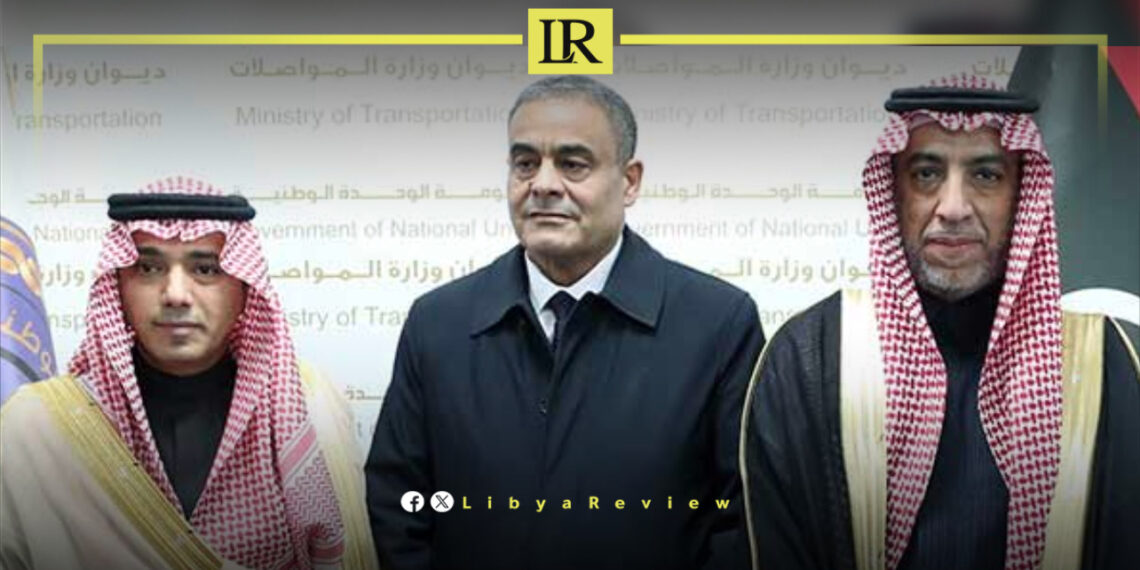Libya is taking significant steps toward reviving its global air travel connections, with discussions underway for the resumption of flights between Libya and Saudi Arabia. On Thursday, Libya’s Minister of Transport in the Government of National Unity, Mohammed Al-Shahoubi, held talks in Tripoli with the Deputy President of Saudi Arabia’s Civil Aviation Authority, Mohammed Saad Al-Fawzan, and his accompanying delegation.
The meeting was attended by Libya’s Civil Aviation Authority President, the Director of Aviation Security, and the Saudi Ambassador to Libya, along with members of the Arab Civil Aviation Organization and the International Civil Aviation Organization (ICAO) auditing committee.
During the talks, the delegation reviewed audit results and findings related to Libya’s Mitiga and Misrata airports, which were assessed as meeting positive standards. The next phase of evaluations is expected to cover Sebha and Benina airports.
Strengthening Aviation Security and International Compliance
At the start of the week, Libya’s Civil Aviation Authority hosted an international audit team formed by the Arab Civil Aviation Organization and the Middle East Aviation Security Program. Over three days, the team assessed Libyan airports’ compliance with international aviation security standards in preparation for an upcoming ICAO security audit.
This initiative reflects ongoing regional cooperation among Arab nations to enhance aviation safety standards through knowledge-sharing and expertise exchange.
Expanding Libya’s Air Travel Network
Libya is also exploring opportunities to expand air travel beyond Saudi Arabia. On Monday, a Libyan Foreign Ministry official met with Spanish Ambassador Javier García-Larrache to discuss the importance of resuming direct flights between Tripoli and Madrid. The talks also encouraged bilateral economic cooperation and high-level visits between the two countries.
Libya’s efforts to restore international flight connections underscore its commitment to modernizing aviation infrastructure, ensuring compliance with global safety standards, and boosting economic ties with international partners.


